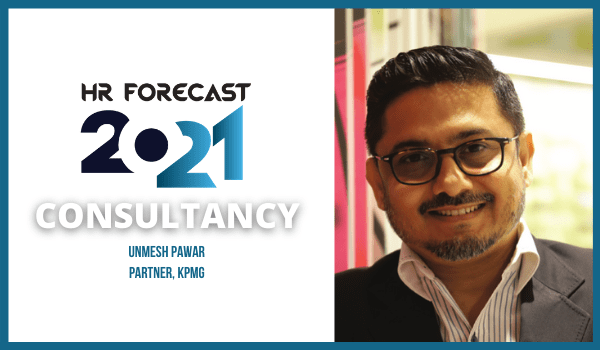2020: What to learn – what to erase
The crisis once again brought to the fore the fact that human beings and organisations have enormous resilience and an ability to adapt and reinvent themselves, whilst withstanding all the pressure amidst uncertainty. The social contract between the employers and employees has undergone a shift and strengthened.
Employers are focused on the physical health, psychological safety and mental well-being of their employees like never before. The pandemic affected everyone across economic and social strata, but it truly was not a leveler by any measure. We saw how it hit the migrant labourers or daily-wage earners in factories. The scars of the widening divide of opportunity, employment and sustainable livelihood need to be erased with deliberate sustained actions into the future.
HR has shown great agility and business acumen
The HR function had its biggest moment of reckoning in 2020 through the pandemic, and the function stepped up and made itself count. The HR leaders did a remarkable job of employee health, safety and well-being. They ensured high employee engagement, reinvented employee communication and reinvigorated to suit the virtual – hybrid working environment. This not only ensured business continuity but individuals felt cared for, connected to the organisations and teams thrived stretching boundaries, allowing organisations to weather the storm and meet their business goals. I envision HR leaders actively investing in further humanising their organisations, reimagining the work, workplace and workforce models. They will ensure their organisations build differentiated capabilities, such as agile innovation, anti-fragility, compassion and empowerment to succeed in the future.
2021 – changing organisational design
2021 will be about the coming of age of all that we have mentioned in the past as focus areas for HR in its pursuit of building an organisation’s anti-fragile mindset. It will be about humanising the corporation and taking a hard look at work, workplace and workforce. We will see the push for automation/ digitalisation continue with people functions actively using AI on structured, unstructured data being generated across multiple touchpoints and life cycle stages of the employee. Such rich data-powered insights will help businesses make sound decisions about people’s capabilities, skill needs and talent mobility towards critical business projects. The hybrid work arrangements will necessitate a newer relationship model that allows employees to thrive. The hyper personalisation journey will fuel employee expectations of consumer-grade experience that will have to be made real through co-creation and use of active and timely listening tools. Work itself will have to be reimagined and the networked organisatio
n structure will gain more foothold.
Growth or decline of HRBPs in India
I anticipate the number of HRBPs will go down here as we reinvent HR roles to support the new world order. Human resource business partner for a business is a key strategic role.
Organisations will need leaders who are good coaches and can empower individuals, while unleashing innovation in teams
The expectation is to advise, consult with business leaders, solve business problems and at the same time help the business leaders to anticipate the uncertain future through the ‘people’ lens. The HRBPs of the future will need to have a strong strategic mindset, the business acumen of the industry they are operating in, and organisation savviness to consult and coach their stakeholders. An analytics proficient HRBP will bring strategic people insights leveraging the power of AI to inform the ever-changing workforce and business operating models. We will see employee experience functions take shape to release the HRBPs from the transactional /day-to day activities. Thus, the HRBP will be a senior role with or two team members at best, for big organisations, focused on the impactful business and people outcomes that will help them pivot and charter new directions.
Upskilling leadership or diversity in leadership
Organisations will have to be deliberate in embracing both these challenges simultaneously. The pandemic-induced economic shocks necessitated changes in business and operating models in real
time. Leaders had to make tough calls with very little visibility of what the future holds in store. The after-effects of some of these decisions have been seen the world over – inequity has risen leading to social and racial unrest, bringing to center stage the conversation around inclusive, diverse and equitable workspaces.
Organisations will need leaders who are good coaches and can empower individuals, while unleashing innovation in teams. Skills, such as collaboration, communication, listening, empathy,
Compassion and dealing with ambiguity will be key in leaders. Organisations will have to diversify their leadership teams, as heterogeneous thinkers clearly outperform homogeneous teams. Building an inclusive, purpose-driven organisation with a strong leadership bench will be a priority for boards/ CEOs in 2021.



